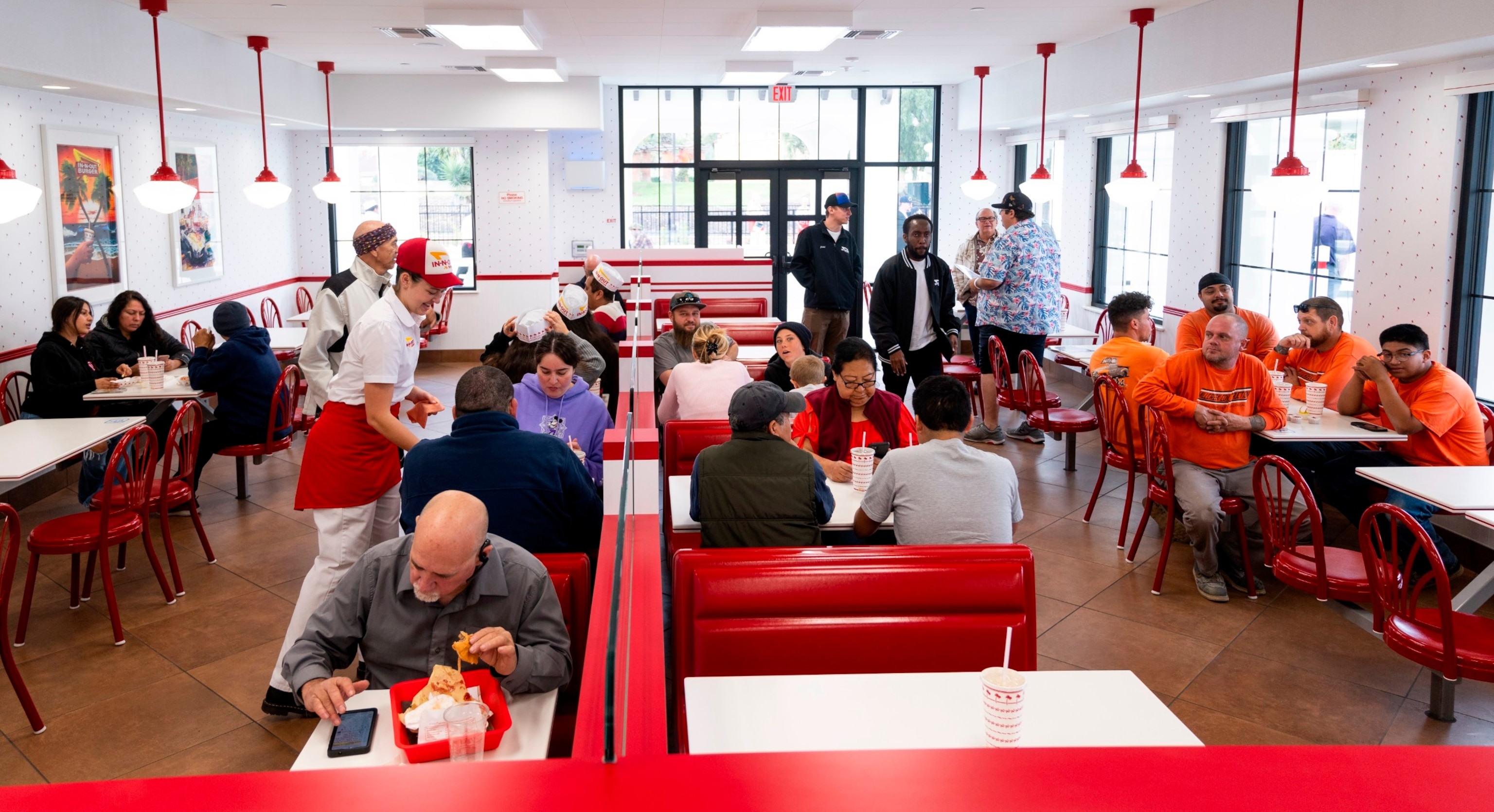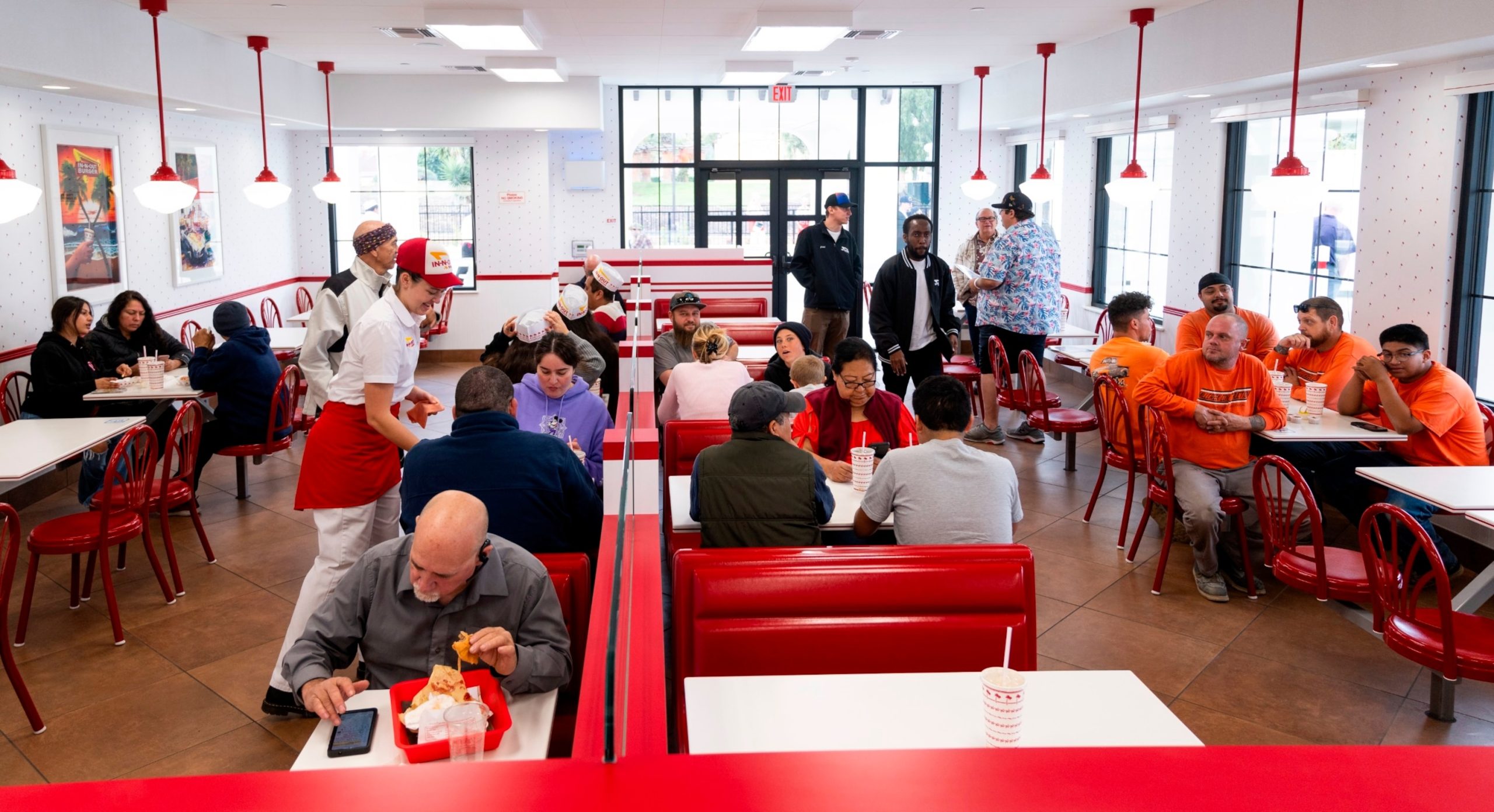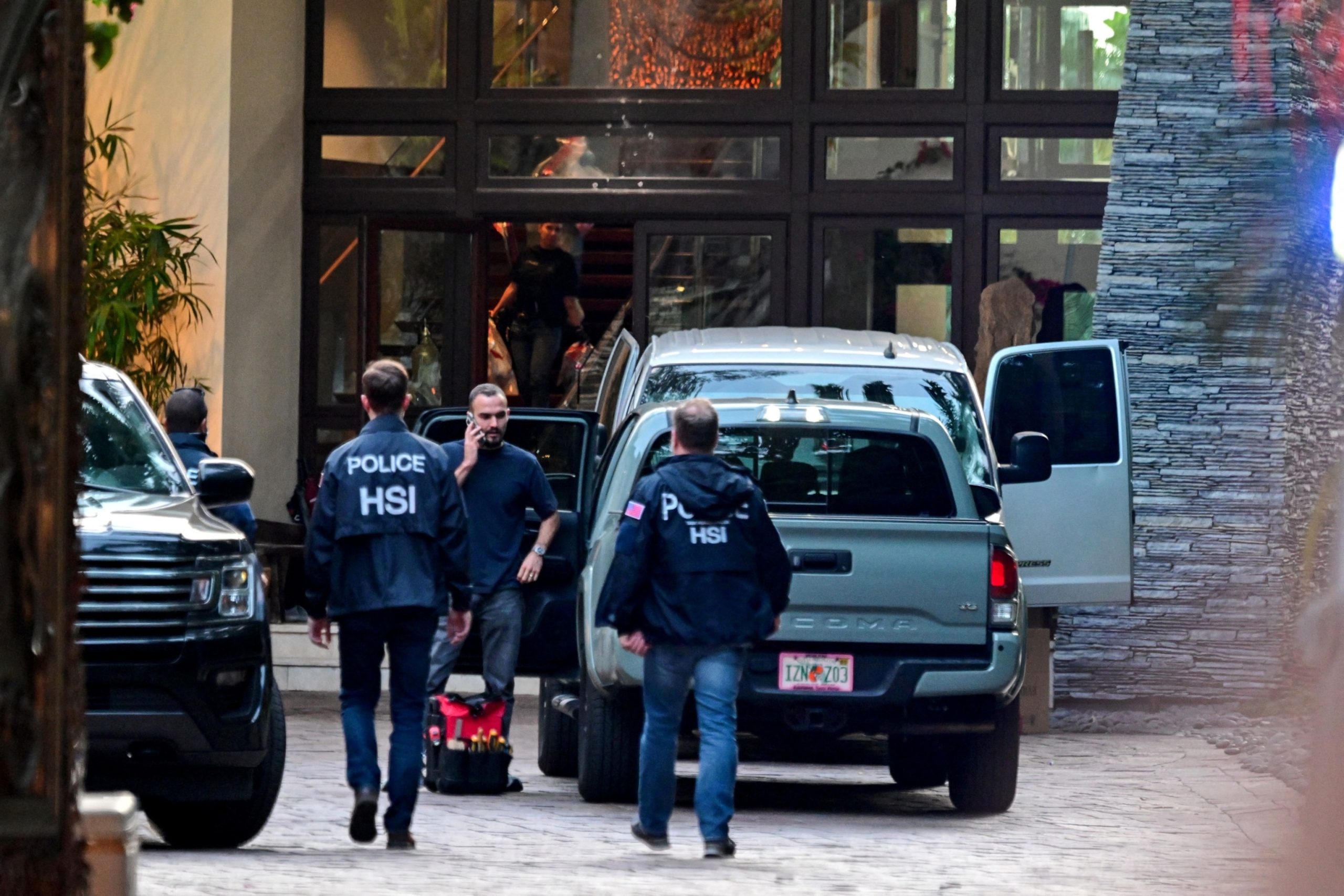Earlier this week, the California General Assembly passed a bill that alters the Golden State’s new law raising the minimum wage for fast food workers to $20 an hour, which goes into effect on April 1.
Assembly Bill 610, written by Assemblymember Chris Holden to amend the Labor Code section of Assembly Bill 1228, clarifies “the scope of fast food restaurants and fast food restaurant workers covered by its terms.”

In-N-Out Burger opened a new store, Dec. 7, 2023, in San Juan Capistrano, Calif.
Paul Bersebach/MediaNews Group/Orange County Register via Getty Images
Gov. Gavin Newsom signed AB 1228 into law last September, which will apply to fast food chains with more than 60 locations nationally beginning next month.
California bill adds exemptions for fast food restaurants raising minimum wage
AB 610 adds exemptions for a wider array of establishments that would not be considered “fast food restaurants” and therefore would not be affected by implementing increased wages if Governor Gavin Newsom passes this new bill.
“This bill would exempt additional restaurants from the definition of ‘fast food restaurant,’ including such restaurants in airports, hotels, event centers, theme parks, museums, and certain other locations, as prescribed,” the legislation states.
Among the proposed exemptions are restaurants located in office buildings or within a campus of buildings “primarily or exclusively by a single, for-profit corporation and its affiliates” that “primarily or exclusively serves employees of that corporation or its affiliates rather than the general public” and is “part of, or subject to, a concession or food service contract covering the building, group of buildings, or campus.”
“AB 610 makes technical amendments to clarify that certain workers at restaurants that are operated in conjunction with larger enterprises, many of whom have historically established compensation and working conditions in excess of the new standards set by AB 1228, do not fall within the fast food industry covered by the law,” Holden stated in a bill analysis last month.

An employee hands over a tray at a McDonald’s, Dec. 2, 2021, in Bavaria, Munich.
Matthias Balk/Picture Alliance via Getty Images, FILE
According to Holden, certain workers at those establishments already have unions and may be making more than the $20 minimum set to be imposed by AB 1228.
“Examples include fast food workers at San Francisco International Airport who have wages starting at $22.50 per hour, plus benefits,” he said, speaking with ABC Sacramento affiliate KXTV. “Fast food workers at casinos who make $23 per hour, plus benefits.”
Exemptions under scrutiny
The exemptions have come under scrutiny from Assembly Minority Leader James Gallagher, Senate Minority Leader Brian Jones and other Republican lawmakers in the state, who sent a letter to Newsom earlier this month asking for records to be released to learn about how certain exemptions were determined.
Gallagher voted no on AB 610 on Monday. The assembly passed the bill by a margin of 55-5, sending the bill forward to Newsom.
“I guess it was a bit of a protest vote because of how shady the process surrounding AB 1228 was,” he said, speaking with KXTV. “There’s been all these exemptions, you know, the one that got the most attention was Panera-gate.”
Under the new law, any establishment that “operates a bakery that produces for sale on the establishment’s premises bread” is exempt from the $20 minimum, so long as it “produces for sale bread as a stand-alone menu item,” but not “if the bread is available for sale solely as part of another menu item.”
The carve-out attracted criticism after Bloomberg News reported in late February that Newsom had allegedly pushed for the exemption to benefit one of his political donors, Greg Flynn, who is a Panera Bread franchisee in the state.
Last month, a spokesperson for Newsom told the Los Angeles Times that Panera would not be exempt from the $20 minimum.
Editor’s Picks
The rep called the Bloomberg report “absurd” and told the LA Times that after its legal team reviewed the legislation, “it appears Panera is not exempt from the law” as the restaurant’s bread dough is mixed off-site.
In a press conference on Sept. 28, 2023, Newsom also stated that carving out the exemption for bakeries was just part of “the sausage making” in politics.
A representative for Newsom did not immediately respond to ABC News’ request for comment.
Flynn, meanwhile, has denied requesting any special carve-outs, telling CNN in a statement that his restaurant locations will raise the minimum pre-tip wage to $20, regardless of any exemptions.
“At Flynn Group, we are in the people business and believe our people are our most valuable assets. Our goal is to attract and retain the best team members to deliver the restaurant experience our guests know and love,” he said.
ABC News has reached out to Flynn for additional comment.
California’s minimum wage has been a hot topic of conversation in recent years, with the state government enacting a series of increases to bring the wage up to $15 per hour by 2023. However, there are some industries that are exempt from these increases, and it’s important for both employers and employees to understand the details of these exemptions.
One of the major exemptions to California’s minimum wage increase is for small businesses with 25 or fewer employees. These businesses are allowed to pay their employees a lower minimum wage than larger businesses, with the current minimum wage for small businesses set at $13 per hour. This exemption is intended to help small businesses stay competitive and avoid potential layoffs or closures due to increased labor costs.
Another industry that is exempt from California’s minimum wage increase is agriculture. Farmworkers are currently paid a lower minimum wage than other industries, with the current minimum wage for agricultural workers set at $14 per hour. This exemption has been a point of contention for many labor advocates, who argue that farmworkers deserve to be paid the same as workers in other industries.
In addition to small businesses and agriculture, there are also exemptions for certain types of workers, such as babysitters, outside salespersons, and employees who receive tips. These workers are subject to different minimum wage requirements based on their specific job duties and industry standards.
It’s important for both employers and employees to understand the details of California’s minimum wage exemptions in order to ensure compliance with state labor laws. Employers should be aware of which exemptions apply to their business and make sure they are paying their employees the correct minimum wage. Employees should also be aware of their rights under California labor laws and speak up if they believe they are being underpaid.
Overall, while California’s minimum wage increase is a positive step towards ensuring fair wages for all workers, it’s important to understand the details of the exemptions in order to avoid any potential legal issues. By staying informed and following state labor laws, both employers and employees can work together to create a more equitable and just workplace for all.



